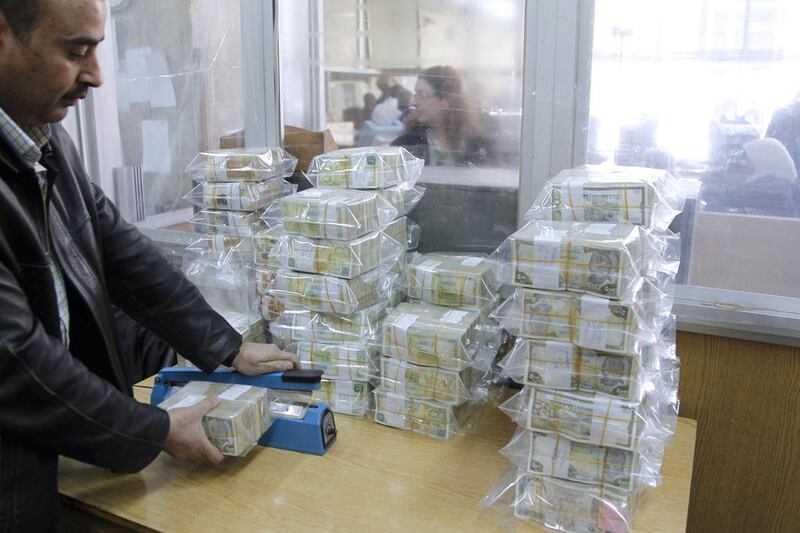Syria’s central bank has launched its biggest currency intervention since the start of the country’s political crisis, injecting US$20 million into the foreign exchange market.
A currency auction was held on Tuesday after a meeting with bankers and exchanges the day before. Syria’s government is seeking ways to control inflation since recent further deterioration in the value of its currency, the pound, after several months of stability.
Adib Mayaleh, the governor of the Syrian banking watchdog, in a statement to Syria’s state news agency highlighted the need for “direct, immediate and strong intervention in the market to stabilise exchange rates”.
The pound strengthened against the dollar following yesterday’s intervention. On the black market, the dollar traded at 162 pounds, compared with 176 in recent weeks.
“It has been some time since they intervened, such as auctions, because it was stable around 142 to 145 for the last six to seven months, but recently the market went a bit crazy,” said a currency trader at an exchange house in Damascus who spoke on condition of anonymity.
The pound trades at a lower value outside the capital, the trader said.
“The prices in Damascus differ a few points from places like Latakia and Tartous because of different supply and demand conditions. There’s a diversion of 4-5 points between Damascus and hot spot areas like Aleppo.”
Yesterday’s auction was the biggest currency intervention the bank has adopted since the unrest that sought to topple the president, Bashar Al Assad, more than three years ago.
In May of last year, Mr Mayaleh announced plans for a $3.6 billion credit facility with Iran to mitigate the effects of international sanctions. The line was activated in July through a deal between the state-owned Commercial Bank of Syria and Iran’s Bank Saderat.
And in June, the central bank pumped $8m worth of foreign currency into banks to finance imports, and €50m were provided to companies and currency exchanges for non-commercial purposes, such as purchases of foreign currency by families up to a $500 monthly limit.
Syria’s foreign exchange reserves officially stood at $17.4 billion in May 2011, but no figures have been released since then.
On Monday, the government called for a presidential election to be held on June 3, a move expected to trigger further violence. As the election looms closer, bank sources expect bigger fluctuations in the value of the pound.
“There’s a general belief that the spread will increase with further tension in the country and many people are expecting a further devaluation in the value of the pound,” said a Syrian businessman who requested anonymity. “That’s why there’s some speculation and people are buying dollar today because it might be more difficult for them later.”
While Syria’s currency has floundered, the country’s stock exchange has offered a safer haven for the country’s investors. The Damascus Securities Exchange Weighted Index is up 43.7 per cent over the past year.
The index closed at 1,250.85 points yesterday. That compares with its peak of 1,752.50 on December 16, 2010, and its low of 768.37 on January 7 last year.
Twenty stocks are listed on the exchange, 12 of them banks, with the rest from the insurance, services, industrial and agricultural sectors.
halsayegh@thenational.ae
Follow us on Twitter @Ind_Insights





